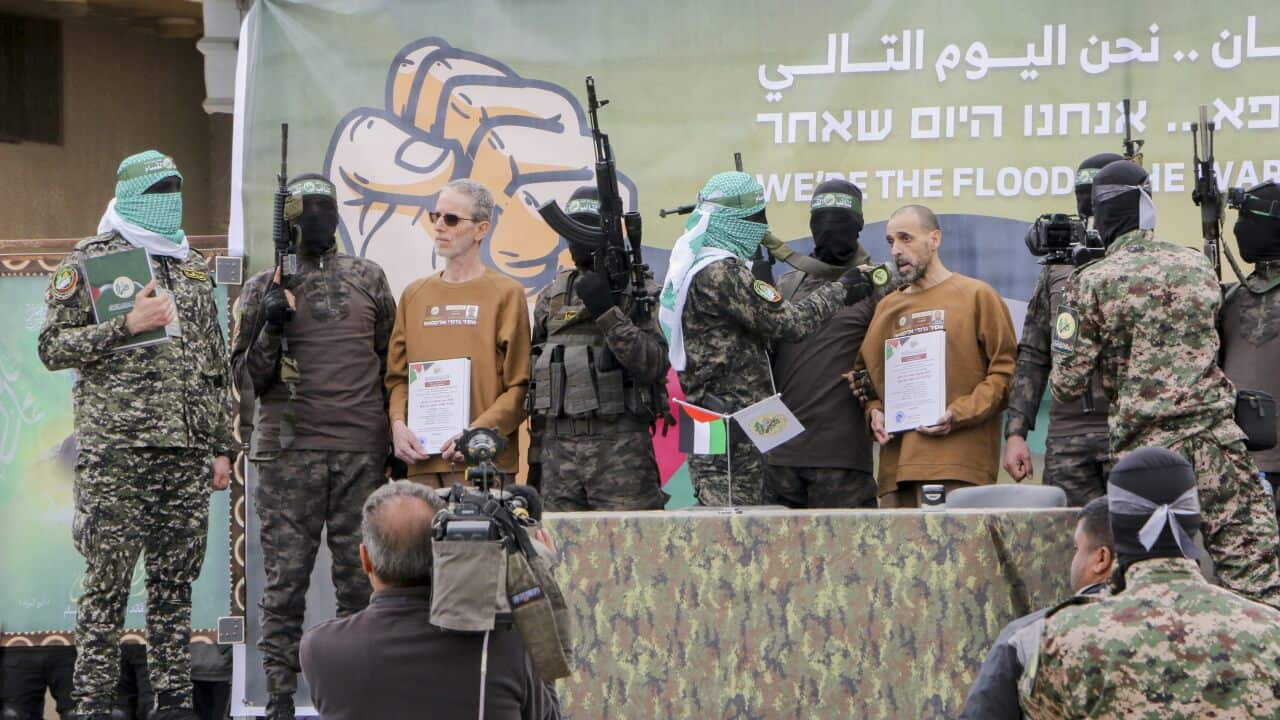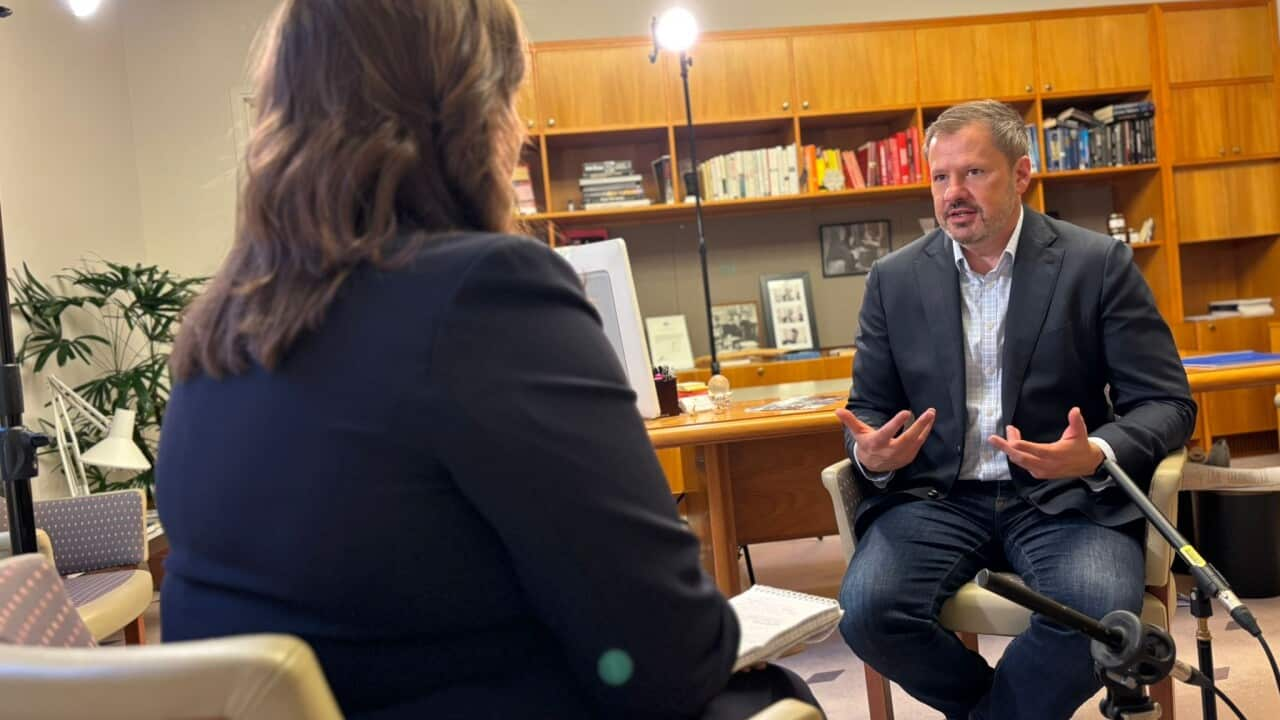TRANSCRIPT
The fragile nature of the Gaza ceasefire deal has become apparent, with a tense 24 hours after Hamas threatened to delay the next release of captives, accusing Israel of alleged violations of the truce.
The militant group alleges Israel has carried out several deadly shootings after the ceasefire went into effect, and has failed to allow in tents and shelters for the many displaced people who live next to the rubble of destroyed buildings.
Israel rejects the accusation, with Prime Minister Benjamin Netanyahu threatening to to withdraw from Gaza ceasefire deal altogether and resume the war if the next hostage does not proceed as scheduled.
David Mencer is a spokesperson for Israel's government.
“If those three are not released, if Hamas does not return our hostages by Saturday noon, the ceasefire will end and the IDF will resume intense fighting until the final defeat of Hamas.”
US President Donald Trump says it is critical the hostage swap goes ahead.
“As far as I'm concerned, if all of the hostages aren't returned by Saturday at 12:00 , if they're not, if they're not here, all hell is going to break out.”
An Israeli government spokesman did not comment on the reports that Hamas would indeed go ahead with the hostage release, but stated that if Hamas did not free three living hostages on Saturday then the ceasefire would end.
Following talks in Cairo, Hamas said mediators from Egypt and Qatar had confirmed they would remove obstacles that could threaten the ceasefire deal, and as a result, the three hostages would be released.
In a statement, Hamas says it held talks in Cairo with Egyptian officials and is in contact with Qatar’s prime minister.
“The discussions during all the meetings and contacts focused on the need to adhere to the implementation of all the terms of the agreement, especially with regard to securing housing for our people and urgently bringing in prefabricated houses, caravans, tents, heavy equipment, medical supplies, fuel, and the continued flow of relief and everything stipulated in the agreement. The talks were characterised by a positive spirit, and the mediating brothers in Egypt and Qatar confirmed that they would follow up on all of this to remove obstacles and close gaps.”
Under the Gaza ceasefire deal, a total of 33 Israeli hostages are set to be released over a six-week period.
So far 21 hostages have been released in five exchanges for more than 730 Palestinians held in Israeli jails.
The families of the Israeli hostages held by Hamas continue to call for the release of all remaining hostages, as accounts of poor conditions and abuse emerge.
On Saturday, Israel released 183 Palestinian prisoners, some also appearing gaunt and weak, several of whom had to be taken to hospital.
War-weary Palestinians in central Gaza, like Samir Abu Rabie, voiced their hopes that the Israeli hostages would be released and that the fragile ceasefire between Israel and Hamas would hold.
“We all hope in God that next Saturday will go well, because the people are tired of the war and the destruction that we have faced. God willing, things will go well and in peace, and nothing negative will happen, and things will turn positive.”
Meanwhile, aid trucks continue to arrive at Gaza’s Rafah crossing - a situation UN officials hope will continue.
The Gaza deal specified at least 600 aid truck deliveries a day - a sharp increase after months of delays that left Palestinians starving.
The UN reports over 12,600 have entered since the ceasefire.
Famine has been largely avoided, but officials warn it could return if the ceasefire collapses.
In Jabaliya, four kilometres north of Gaza City, residents returned to find their homes in ruins.
Displaced families endure freezing nights beside the rubble, their tents flooded or torn apart by heavy rain and strong winds.
50-year-old Hani Abdrabu is among those affected.
“Today, we need shelter for our children and women. Tents do not provide real protection - the wind blows them away, and sewage water floods them. We need at least the bare minimum that was promised and written in agreements, not as part of deals and trade, but out of basic humanitarian duty. In the end, we are individuals, and the Palestinian people deserve a dignified life - one they have been striving for since the Nakba until today.”













